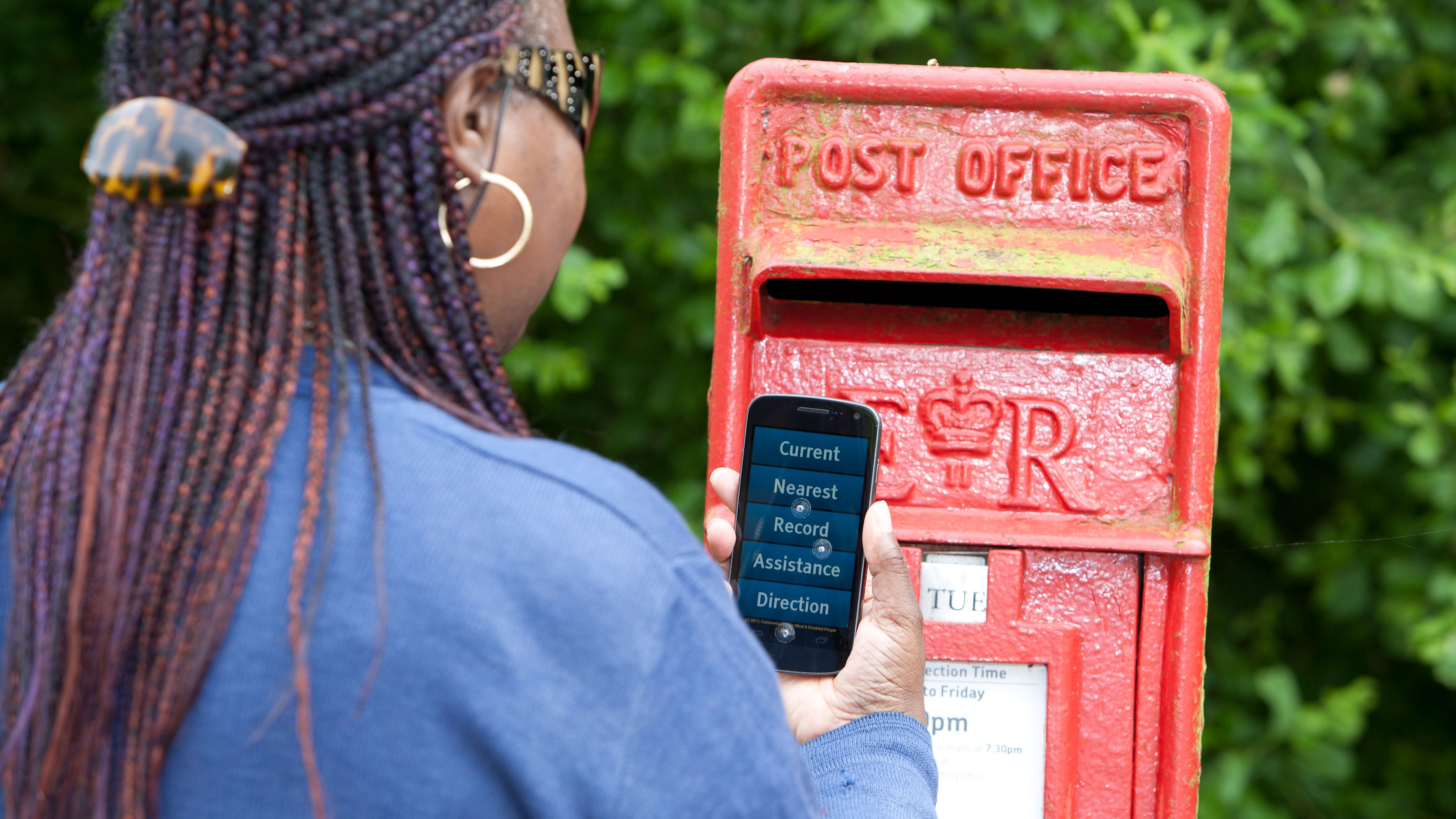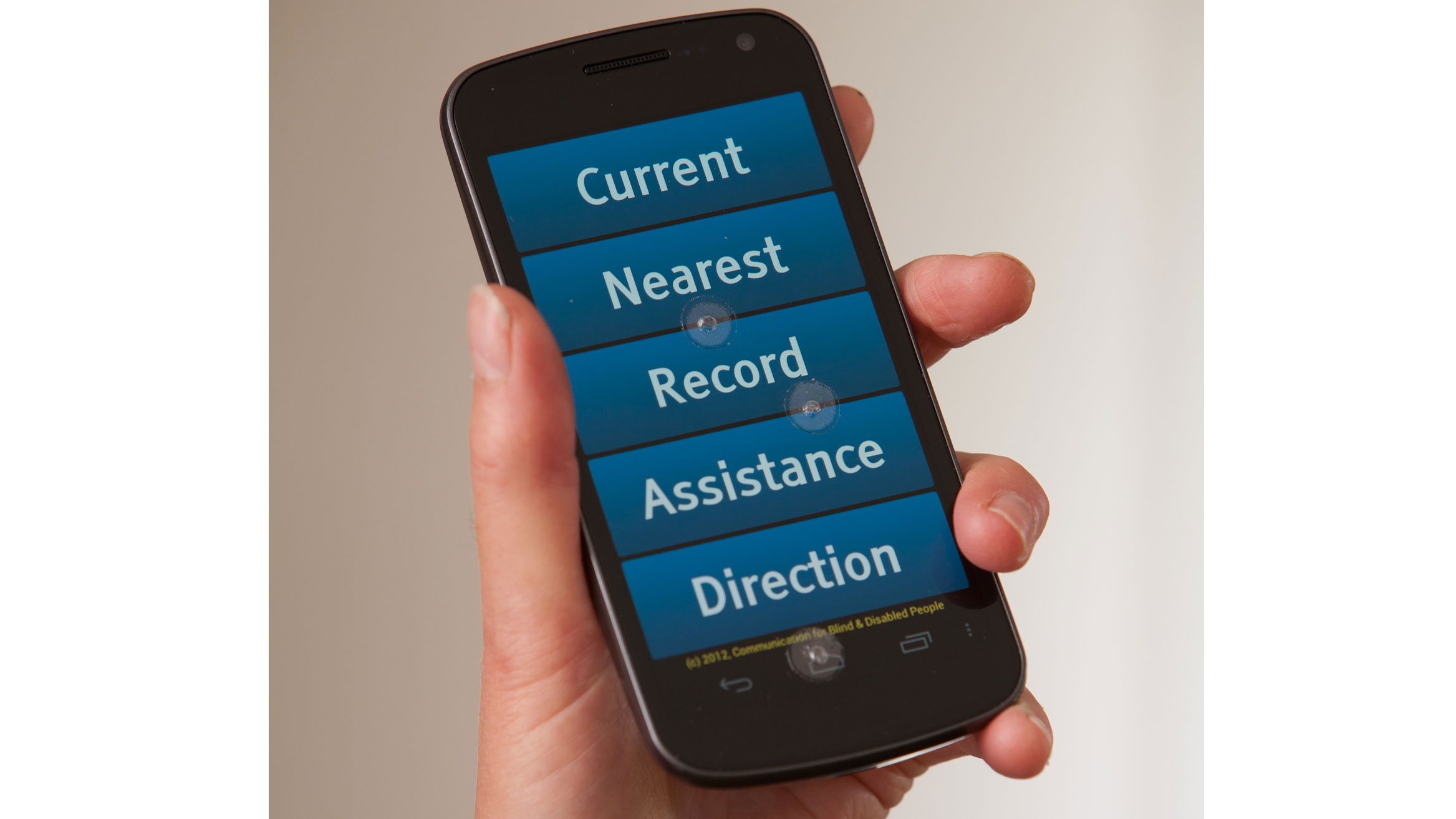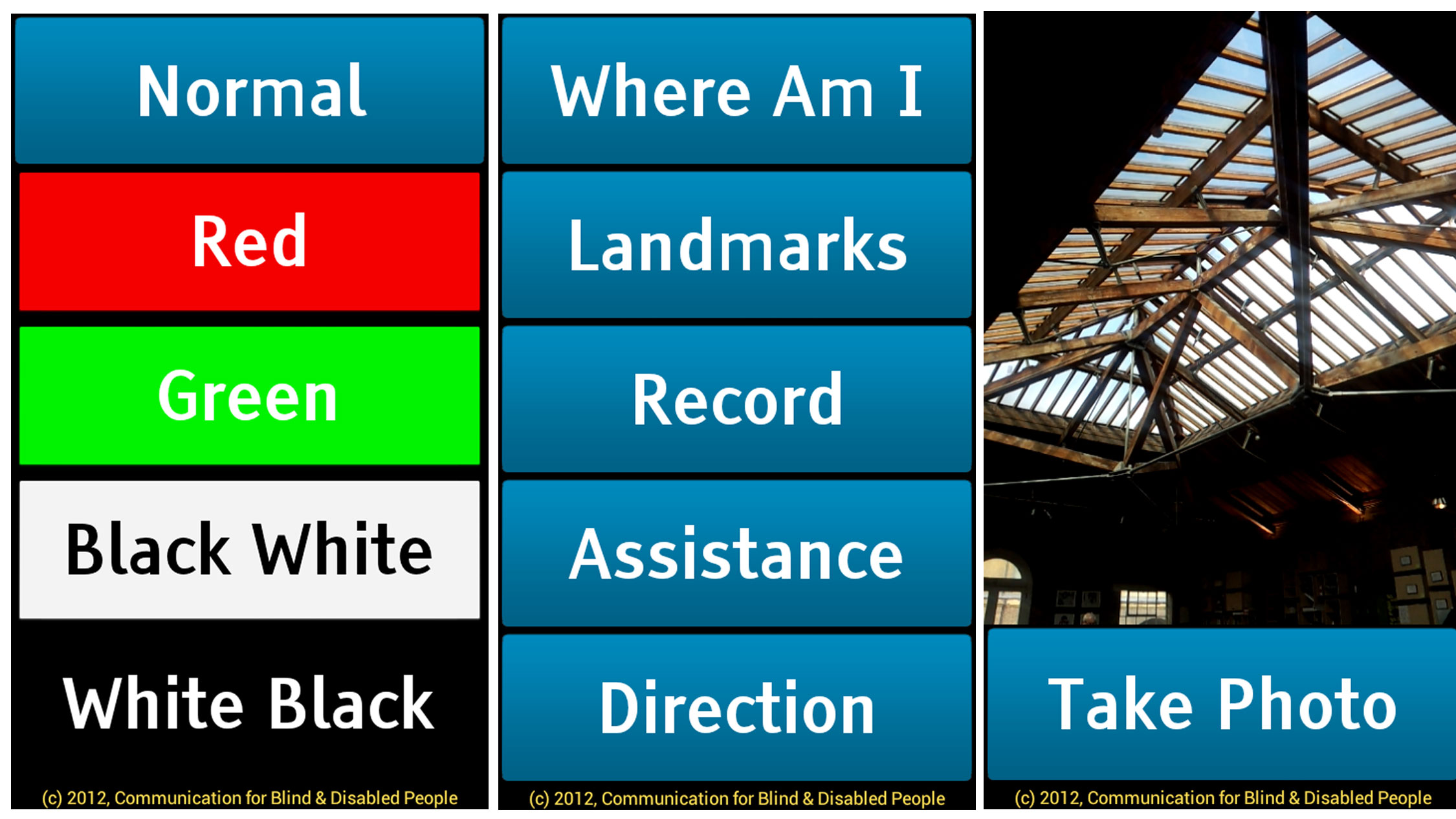How can you use a phone if you can't see?
The other side of the smartphone boom

With one in 30 people in the UK suffering some sort of sight impediment, it's easy to forget how the smartphone revolution could be passing them by.
As tech fans, we've become a bit blasé about cutting edge features, always looking to next and more impressive thing, even before other features have emerged.
This is true of all technology, but in the smartphone arena things have moved so quickly: the touchscreen, new user interfaces, mapping and powerful gaming are now the norm for a device that costs less than £160.
The flipside of all this technological innovation is that some of the key elements are becoming less accessible to those with visual impairments. Tactile devices with large keys are only available in specialist shops these days, when a few years ago the popular Nokia keypad at least provided familiarity and stability.
Switch that device for a slab of glossy touchscreen gadgetry and the issues the blind face become obvious, with no way of knowing what's being pressed or which of the myriad apps you're looking at.

Maybe you're like us when it comes to the smartphone: feeling guilty for checking it too often, experiencing mild panic when you can't find it for a few seconds and getting antsy when you're denied its presence for any length of time.
The level of reliance on the phone as an entertainment tool as much as a communicator was highlighted to us by ScreenReader, a new mobile app designed for those with sight loss. There is plenty of effort from the likes of Google and Apple to put the likes of screen readers and other accessibility features in their operating systems, but there's not many options for the less technically-minded smartphone user.
Get daily insight, inspiration and deals in your inbox
Sign up for breaking news, reviews, opinion, top tech deals, and more.
To illustrate the need for the app, we spent a couple of hours at a restaurant that is designed to give customers the true experience of blindness during a meal.
It's likely that most people will never have experienced such a thing – it's an eye-opening experience in more ways than one. As soon as we were enveloped by the inescapable darkness, our first instinct was to reach for our phone to use it as a torch.
And when sitting there in the dark unable to interact with others due to the initial cacophony of noise from those entering, there was a constant impulse to fire up the internet browser or knock out a few seconds of Temple Run to pass the time before we could get some kind of other stimulation.
The range of things inaccessible to those with visual impediment isn't necessarily something that would occur to a fully-sighted person. And that's why ScreenReader's new Georgie program is so impressive.
Looking at it from a stark technological point of view it's easy to scoff at the project; large, basic buttons, voice recognition that is still a long way from being accurate and a relatively low range of functionality (contact management, text messaging and basic navigation) aren't exactly going to compete with location-based notifications or eye-tracking software.

But only when deprived of your ocular senses do you realise the incredible power Georgie brings – the smartphone moves from being frustrating and inaccessible to an incredibly useful tool for those with sight problems.
The user interface is the most impressive: sliding your finger over the screen triggers audio feedback to let you know which app is under your digit and a long-press enables it.
It takes some getting used to, but that's from the perspective of someone that has become used to the intricacies of most mobile operating systems. A few minutes of touching and the layout becomes very predictable and stable.

Gareth has been part of the consumer technology world in a career spanning three decades. He started life as a staff writer on the fledgling TechRadar, and has grew with the site (primarily as phones, tablets and wearables editor) until becoming Global Editor in Chief in 2018. Gareth has written over 4,000 articles for TechRadar, has contributed expert insight to a number of other publications, chaired panels on zeitgeist technologies, presented at the Gadget Show Live as well as representing the brand on TV and radio for multiple channels including Sky, BBC, ITV and Al-Jazeera. Passionate about fitness, he can bore anyone rigid about stress management, sleep tracking, heart rate variance as well as bemoaning something about the latest iPhone, Galaxy or OLED TV.